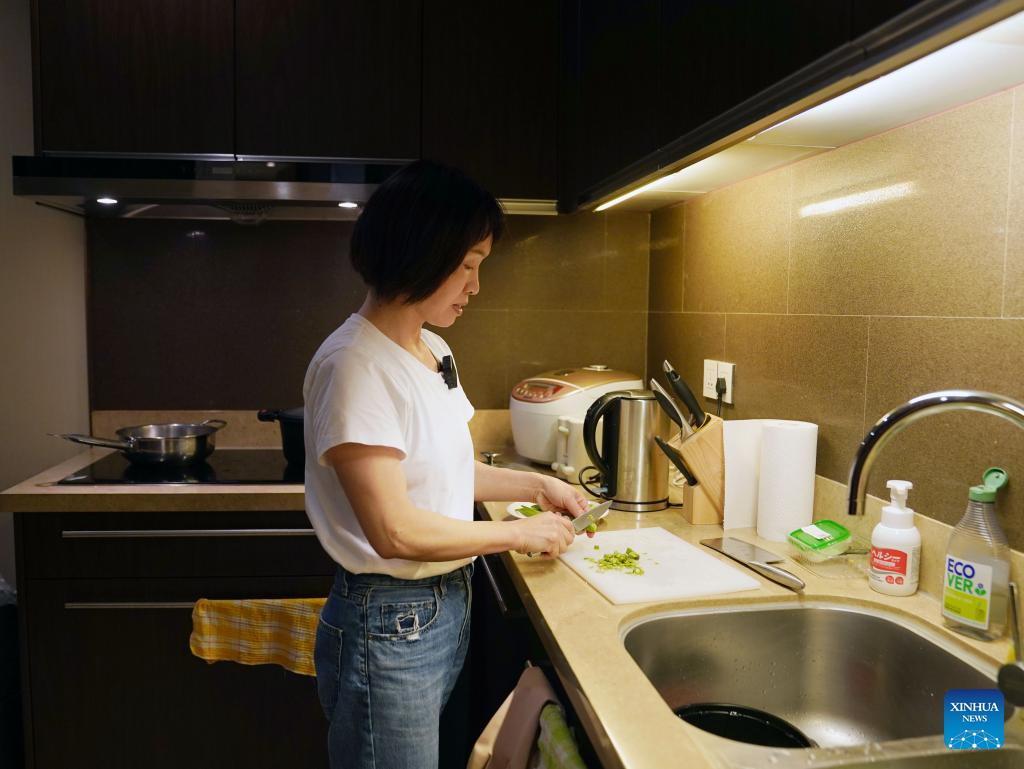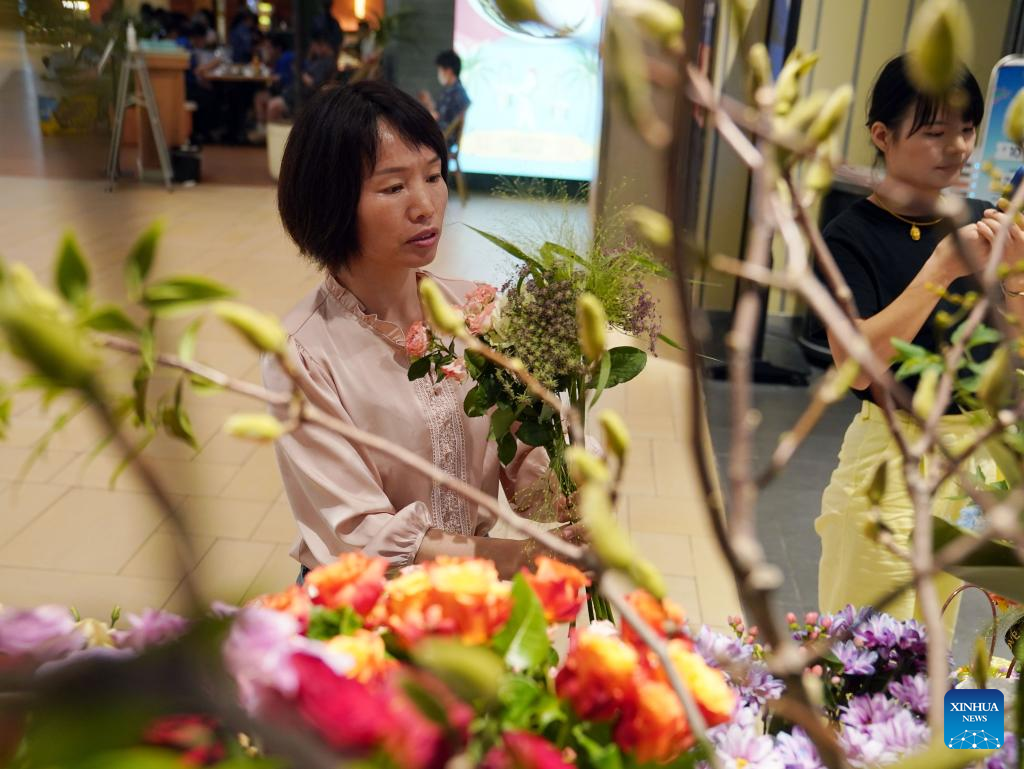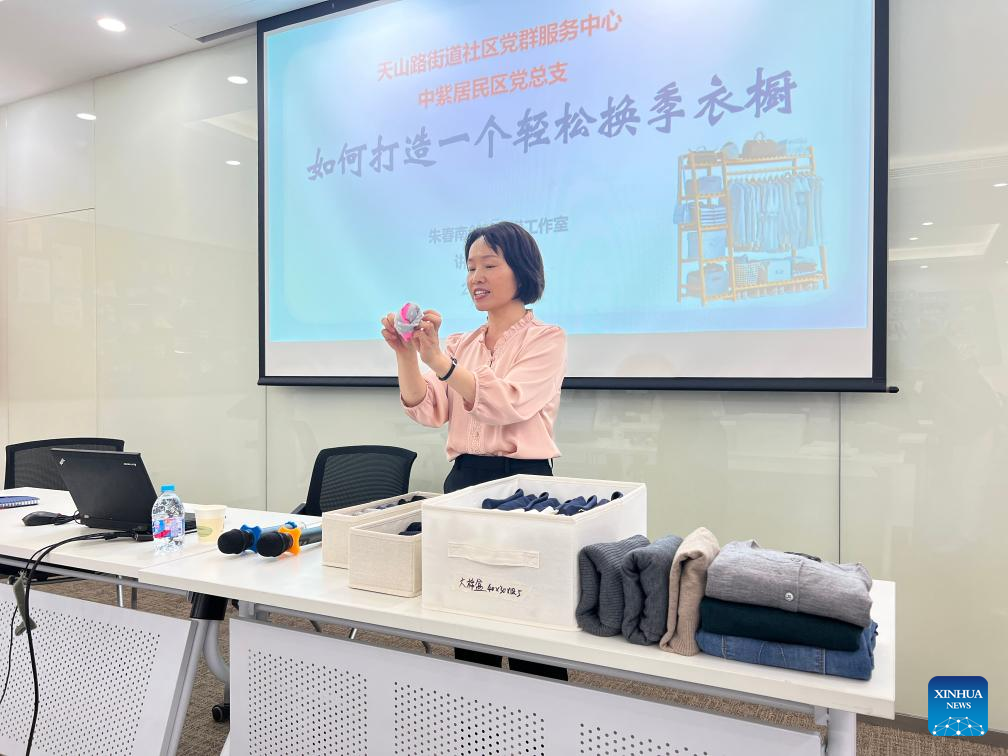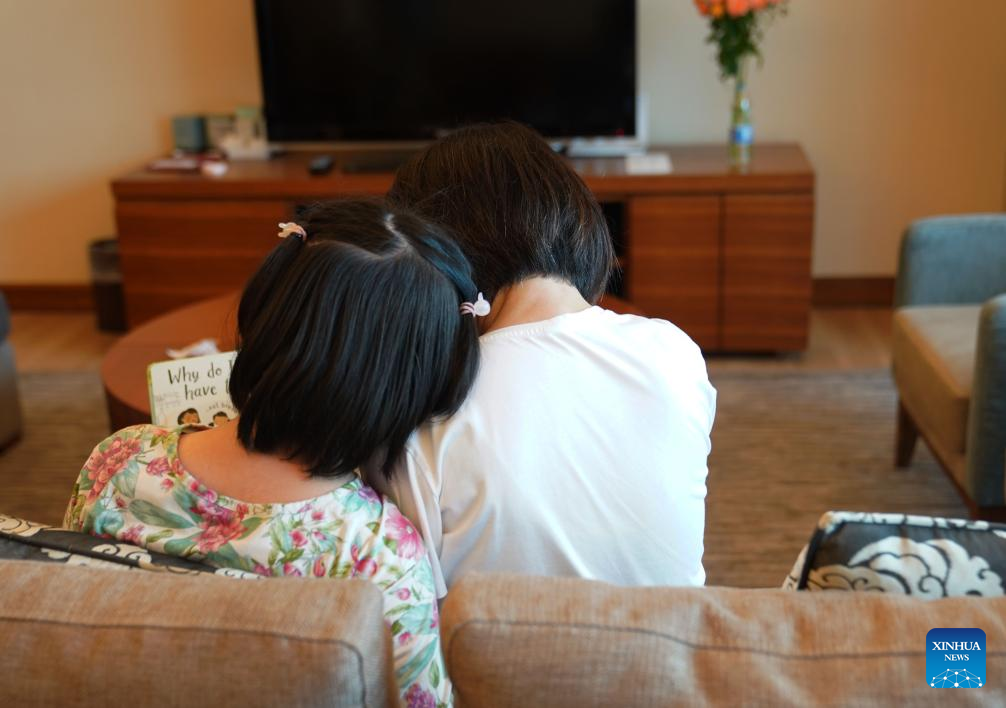[ad_1]

Zhu Chunnan talks with her employer’s child in east China’s Shanghai, July 29, 2023. (Xinhua/Liu Ying)
SHANGHAI, Aug. 1 (Xinhua) — After working as a housekeeper in Shanghai for nearly two decades, 49-year-old Zhu Chunnan finally realized her dream of getting an undergraduate diploma in July.
As an experienced housekeeper with multiple skill certificates and honors, Zhu fondly admits that gaining experience as an undergraduate was a cherished aspiration in her life.
Zhu is among the first batch of 95 graduates from Shanghai majoring in domestic service. She completed her junior college education and undergraduate curriculum at Shanghai Open University over a period of five years.
The university started the undergraduate program in the study of domestic service in March 2021 in order to help domestic service employees upgrade their professional skills which can help boost their confidence and career prospects.
“Unlike the focus on skill upgrading in junior college education, this undergraduate study offers in-depth courses covering a wide range of subjects such as nutriology, health management, consumption guidance, aesthetics, and laws and regulations,” said Yang Wanling, an associate professor at the university.
Data shows that the number of domestic service providers in China has exceeded 30 million, and the scale of the country’s domestic service market is expected to reach 1.16 trillion yuan (about 162.7 billion U.S. dollars) in 2023.
Long gone are the days when housekeepers only needed to do general cleaning tasks such as dusting, vacuuming, mopping floors and making beds. Industry insiders revealed that an increasing number of Chinese families are demanding higher standards for domestic services, leading to a scarcity of high-quality housekeepers in the labor market.
Statistics indicate that approximately one-third of the over 8 million families in Shanghai either avail of or require domestic services. Meanwhile, there is a shortage of about 30,000 employees in high-end domestic service in the metropolis.
According to the head of a domestic service company, many families now seek housekeepers who possess not only the ability to perform basic housework like cooking and cleaning but also additional skills, such as caring for pregnant women, infants and young children. These evolving demands have raised the bar for housekeepers’ professional standards and communication skills.
Sensing the employer’s significant emphasis on food nutrition, Zhu pursued studies in nutriology, health management and other related courses, and passed relevant vocational skill appraisals. Additionally, to enhance her ability to care for her employer’s children, she diligently acquired parenting knowledge and skills.
As an all-rounder in housekeeping based in Shanghai, Zhu has gained increasing popularity among employers.
“Engaging in systematic college studies has granted me a profound understanding of my area, while the enhancement of my professional competence has instilled greater confidence and tranquility within me,” Zhu said.
She went on to add that only by expanding their skills can housekeepers keep up with the needs of social development, secure higher social esteem, and gain better career prospects.
“Going to college has been my dream since childhood and I believe it may become a requirement for all practitioners in this sector one day in the future,” she said.
According to Wang Shuxia, the president of the China Home Service Association, the increasingly diversified service demands from different groups are promoting the adjustment of the supply side. Domestic service has been upgraded to a multi-format sector covering home education, housework arrangement and nutrition management, among others.
In light of the limited number of housekeepers with a college degree or higher, Lu Qi, the dean of the university’s school of public administration, believes that the solution lies not in training college students to become housekeepers, but rather in offering more housekeepers access to university education.
“Learning is a lifelong process. I have benefited from it a lot and I hope my choice can encourage more young housekeepers,” Zhu said.

Zhu Chunnan prepares lunch at her employer’s home in east China’s Shanghai, July 29, 2023. (Xinhua/Liu Ying)

Zhu Chunnan buys vegetables for her employer’s family at a supermarket in east China’s Shanghai, July 28, 2023. (Xinhua/Liu Ying)

Zhu Chunnan selects fresh cut flowers for her employer’s family at a store in east China’s Shanghai, July 28, 2023. (Xinhua/Liu Ying)

Zhu Chunnan gives a lecture on closet arrangement at a community in east China’s Shanghai, May 30, 2023. (Xinhua/Liu Ying)

Zhu Chunnan arranges a wall cabinet at her employer’s home in east China’s Shanghai, July 29, 2023. (Xinhua/Liu Ying)

Zhu Chunnan reads a book with her employer’s child in east China’s Shanghai, July 29, 2023. (Xinhua/Liu Ying)
(Web editor: Zhang Kaiwei, Liang Jun)
[ad_2]
Source link



